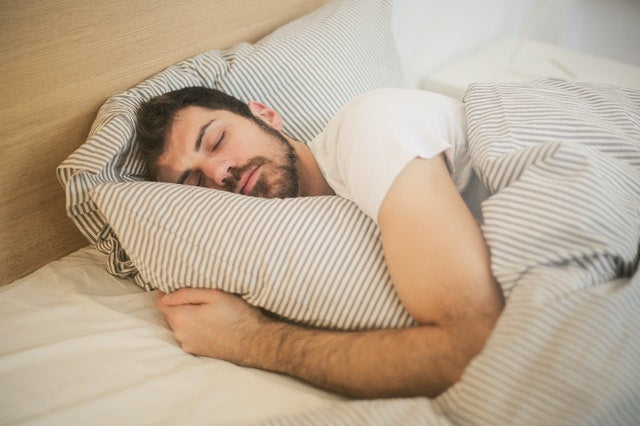Your Cart is Empty

Sleeping and waking up are directly correlated to each other. Whenever we think about sleeping, the thought of setting up different alarms for when is the best time to wake up comes to mind immediately. In determining how to set a bedtime, it would be best to get a good grasp of how much sleep an average person would need.

Honestly, we would sleep all day if we could! Sleep is a beautiful thing! Generally, 7-9 hours of sleep a night is the standard for adults... (Yes, we wish it was longer, too!) The required sleeping time may vary depending on age, work schedule, and sleeping patterns which means each of us should have our best time to wake up before work or on a school day. Given that there are differences, it is still advisable to have consistent hours of sleep every day to keep our circadian rhythm or body clock regulated.
The required sleeping hours also vary by age. For reference, the table below demonstrates how much a person must sleep each day according to age:
|
Age
|
Hours of sleep
|
|
0–3 months
|
14–17
|
|
4 months to 2 years
|
11–16
|
|
3–5 years
|
10–13
|
|
6–13 years
|
9–12
|
|
14–17 years
|
8–10
|
|
18–64 years
|
7–9
|
|
65 years and over
|
7–8
|
The table above shows that sleep requirements will change throughout the years and will help you with how to find the best time to wake up. It is also important to note that not everyone’s sleep schedule follows the table despite being in the same age group. Another factor such as genetics and routine can help you determine how many hours you should sleep. Some people may need at least 9 hours of sleep at night while others may find 7 hours of sleep adequate to feel well-rested. It all amounts to how you feel after sleeping!
Here are some questions you could ask yourself to determine whether you’ve had an appropriate amount of sleep.
Our body clock helps our body and brain slow down as it gets late at night and we feel the urge to wake up when the sun has risen. When you wake up and are exposed to sunlight, your body relays a message to your body that would result in rising in temperature and stimulating metabolism. The sun emits blue light that would make us feel awake during the day while the lack of blue light would result in a higher melatonin level to help us sleep. This cycle is an essential part of sleep regulation and sleep patterns in humans.
The National Sleep Foundation advises that between 8 pm and midnight is the general time to sleep but you should also consider which time frame is recommended for your age group. That particular time frame would help in achieving the best time to wake up without feeling tired which means the stages of sleep have been achieved. In addition to that, some studies recommend that early bedtimes are preferable for a healthy body clock and some argue that 8 am is the best time to wake up.

How you determine the best time to wake up is based on the time you have risen and count backward to how many hours you desire to sleep. For a clearer scenario, if you need to wake up at 8 am, try winding down before midnight. While choosing a sleep schedule, you should try to be consistent, even on weekends. Staying up late for several days in a week will take you off track on your regular sleeping schedule. Therefore, the best time to wake up on weekends is the same time you would on weekdays.
A study conducted in Japan found that people who sleep late had more chance of having depressive symptoms... Another factor that added to the result was the fact that the people who slept late would get less sleep. Cognitive function is directly affected by sleep quality. According to another study, people who prefer sleeping late had a higher tendency to also think more negatively... (Sounds like getting up earlier is the better option!)
Having an appropriate sleeping schedule that follows our best time to wake up circadian rhythm can get complicated for night shift workers as they normally sleep during the day and work at night. Studies have found that people who work night shifts have a higher rate of early mortality, lower brainpower, and obesity. Habits before bedtime and sleep schedule have a huge impact on mental health, performance, energy, and overall wellbeing. To avoid such adverse effects, living a healthy lifestyle and sleeping at the right time consistently should be your number one priority. That way, you will feel refreshed after a good deep sleep!
If you struggle with sleeping better, here are some tips to help you:
The importance of sleep cannot be stressed enough. With its many benefits, there are also consequences when the required sleeping time is not met. Experts recommend 7 to 9 hours of sleep for adults and to help you with catching the correct amount of zzz’s. The best time to wake up sleep cycle calculators offer a feature that determines what time you should sleep based on the time you woke up, so check those out! An extra helping hand from applications such as a sleep calculator or habits will improve your sleep health and it will eventually bring you better quality sleep and wake up feeling refreshed.
We hope you find your best sleeping schedule and get a good night's rest. Thank you so much for reading this blog and happy sleeping!
Comments will be approved before showing up.